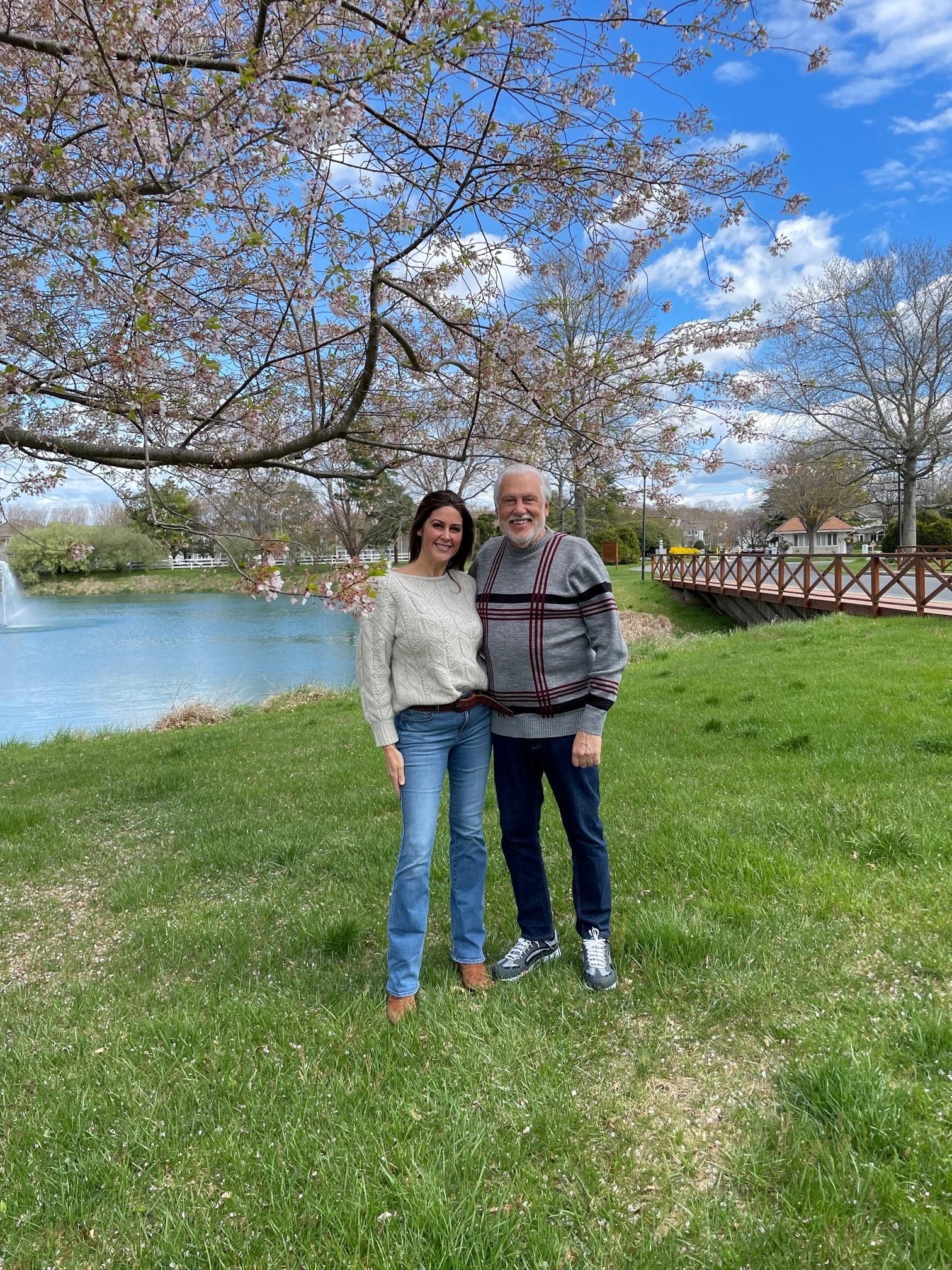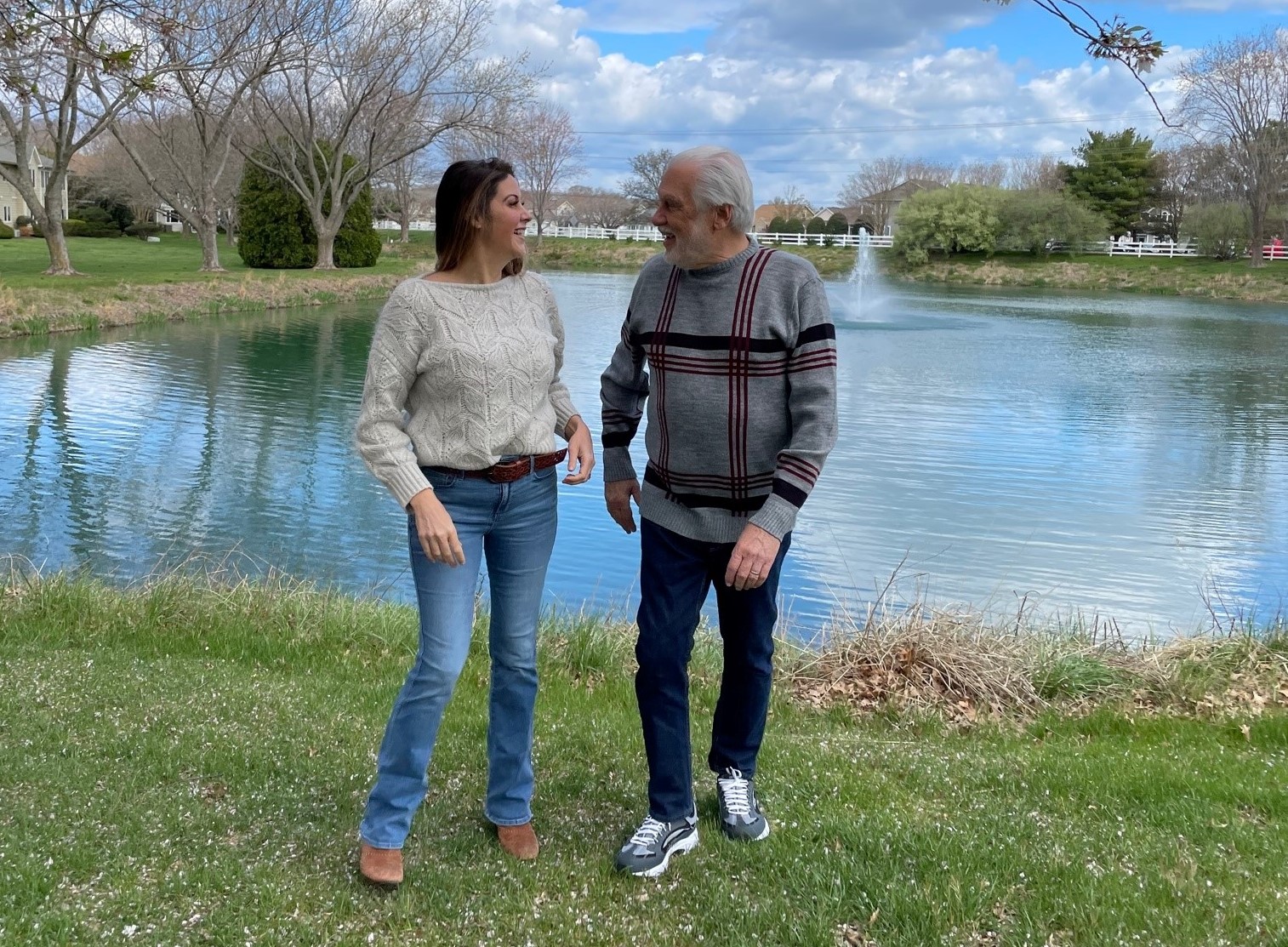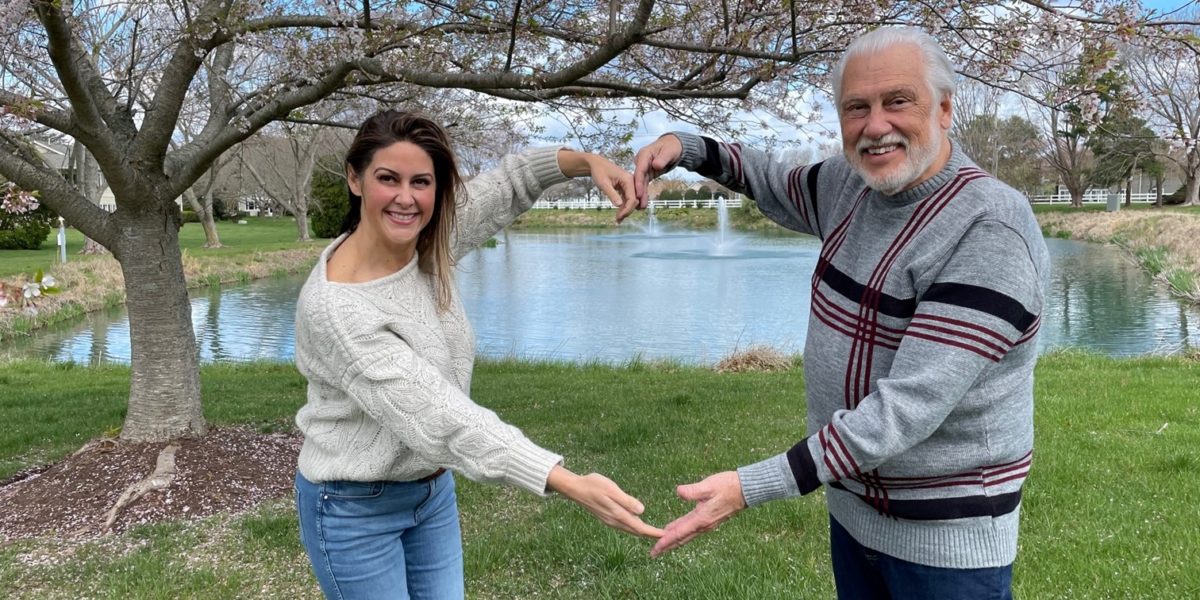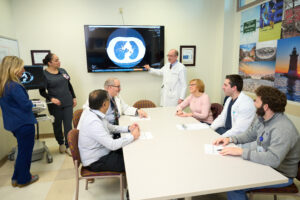This year, Kristin Begley doesn’t have to worry about finding the perfect Father’s Day gift for her dad, Mark Hetterich. She’s probably covered for his birthday and all the other holidays as well.
After all, it’s hard to top the gift of life.

Last September, Begley, who lives in Lewes, Delaware, donated one of her kidneys to her father, who was diagnosed with kidney failure. The duo underwent surgery through the Kidney Transplant Program at ChristianaCare.
For Begley, who is married with two children, the decision to donate one of her kidneys to her father was a relatively easy one. She was a blood and tissue match and in good health. She also knew her donation would immediately improve his long-term health.
“I never had a doubt that this was the right thing to do,” said Begley, who is a pharmacist by training.
“This isn’t just my father. It’s my mother’s husband, my children’s grandfather. This is our family. I couldn’t think of one us not being here, especially if there’s something I could do to help.”
Exploring living donation
Although Hetterich wasn’t yet experiencing severe health-related issues from kidney failure, he knew he might eventually need a transplant. He had sought out family in Nebraska to look for a possible match and made arrangements to be listed at multiple hospitals that performed kidney transplants.
Transplant recipients with a living donor have the best outcomes.
A living donor transplant is a procedure where a kidney is removed from a healthy donor and its surgically implanted in a recipient with kidney failure.
The living donor can be anyone who is healthy to donate. It can be a family member, spouse or friend. Living donor kidneys can also come from strangers or someone who wants to help someone in need of a kidney.
About one-third of all kidney transplants performed in the United States are from living donors, a statistic that continues to increase even with the COVID-19 pandemic, according to the United Network for Organ Sharing.
One of the biggest advantages for living donation is increased survival rates for organ recipients, in part because the kidney starts functioning immediately after transplant.
For recipients who have poor kidney function but aren’t yet on dialysis—like Hetterich—a living donor offers the opportunity to schedule a transplant before the situation becomes dire.
That flexibility was important when the pandemic prompted the postponement of their surgeries twice, including the day before they were scheduled to undergo the procedures, said Eileen Edge, MSW, LCSW, a social worker with the transplant program.
“Kristin was determined,” Edge said. “These two were set to go through this together.”
Healed, healthy and energetic
Seven months later, both Begley and Hetterich are healed, healthy and energetic supporters of live-kidney donation. Within weeks, Hetterich was walking two miles a day and back to his favorite pastime of bowling.

It took Begley a few weeks to get back to her normal level of productivity, which is normal for donors, Edge said. In her post-donation life, Begley said she is actually healthier now than before she donated her kidney. She started exercising and lost weight, and remains vigilant about her nutrition and physical activity.
“I got healthier because I thought to myself, ‘I need to take care of me,’” Begley said.
Hetterich is grateful for his daughter’s generosity, but he still gets emotional when talking about what it meant for him.
“I didn’t have qualms about her donating a kidney, but I did shed a lot of tears over it,” he said. “It’s just a very sensitive issue. I didn’t want to affect her life.”
‘Something special’
Hetterich said he chose ChristianaCare’s kidney transplant program not only because of its strength as a regional leader in transplants, but the kindness of everyone he met.
“There is something special about the people here,” he said.
Now that he’s back to full strength, Hetterich is back to his favorite job as a retiree—playing grandpa to his grandchildren. He and his wife Connie live near Begley and her husband, Stephen, and they take their grandchildren for a night on the weekends.
“The arrangement is mutually beneficial,” Begley said laughing, “They have a puppy, so they’re glad for our kids to wear him out.”



